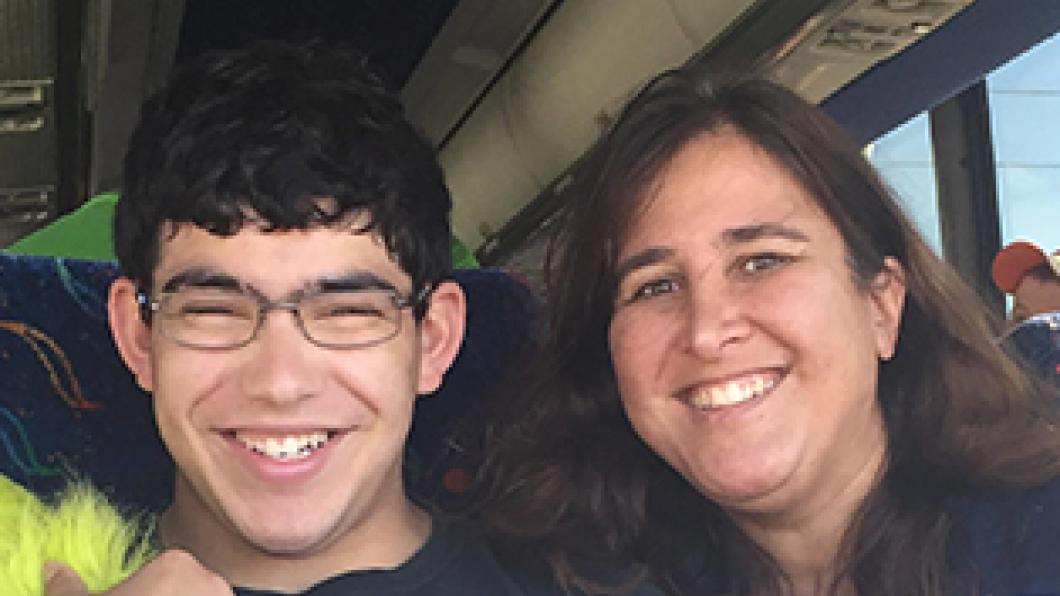
For Holland Bloorview research, the family voice is loud and clear
The word ‘research’ sometimes conjures up images of scientists in clean white lab coats conducting experiments that no one really understands.
For some parents of kids with disabilities, the realm of research can be confusing, intimidating, even a little scary.
At Holland Bloorview, research isn’t a scary word. It’s family-centred and family-driven, thanks to the involvement of client parents like Sharon Gabison.
Her goal, in her words, is to “bring the family voice to research.”
Sharon is a Holland Bloorview Family Leader and the Co-Chair of the hospital’s Research Family Engagement Committee (RFEC).This committee helps researchers effectively engage families in research.
Along with the committee, Sharon reviews research grants, advises on research projects and facilitates getting research results into the hands of families through plain-language summaries to help them access findings that are meaningful to them.
Bridging scientists and families
How did she get so involved?
Her son, who is now 21, is a former client who has autism and a developmental disability.
When he was a client, she and her son took part in a research study that looked at the effect of medication on treating symptoms of ADHD in kids with autism. She was hooked.
“I have a passion for research in general,” said Sharon. “I'm really passionate about trying to get families more involved, and also to help researchers become more informed about how to engage families and use that information to direct their research.”
It also doesn’t hurt that Sharon completed a PhD in medical sciences. (Her area of expertise is pressure injuries, also known as “bedsores”). So she’s able to bridge scientists’ curiosity with real-life issues for children and families living with disabilities.
“Researchers may have a question they want to answer, but it may not be relevant for families,” she said. “The end product is to improve a child's life, whether it's treatment focused; or being part of a community; or socialization; or feeling connected; or improving their health. But if you don't ask the right questions, how are you going to help families?”
Research that gets results
She looks at the development of the Hummer as a perfect example of research that can have a huge impact on a child’s life.
Developed by Dr. Tom Chau, Holland Bloorview’s Vice President of Research, the Hummer is a life-changing device for kids who have difficult speaking. It converts vocal cord vibrations into a digital signal. The signal is fed to a computer that interprets the noise like a click of a mouse, allowing a child to type words and complete sentences which are then expressed through a digital voice.
“Imagine if that sort of technology was available to everybody who has a child with difficulties expressing themselves verbally,” she said.
It’s research like this that drives Sharon to continue to connect families with research and show them that they can play an important part in moving research forward.
“Having a child with a disability can be quite disempowering,” she said. “As a parent you're constantly having to rely on the goodwill of others to do things that you know your kid needs. Being involved in this capacity helps parents feel like they're in some control to not just improve their own child's experience, but the experience of other children with disabilities.”
And Sharon is trying to do just that. In addition to serving on the RFEC, she is also spreading the word about Holland Bloorview’s family-centred research and model of collaboration outside its walls by serving as part of the community of practice group at the Council of Academic Hospitals of Ontario.
“We’re able to share with other organizations how Holland Bloorview engages families and how it does this very well,” said Sharon.